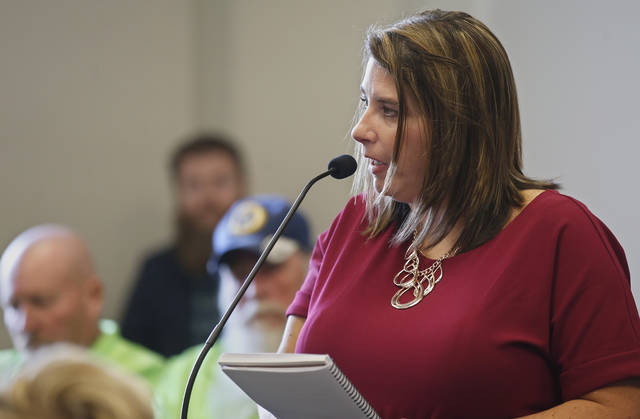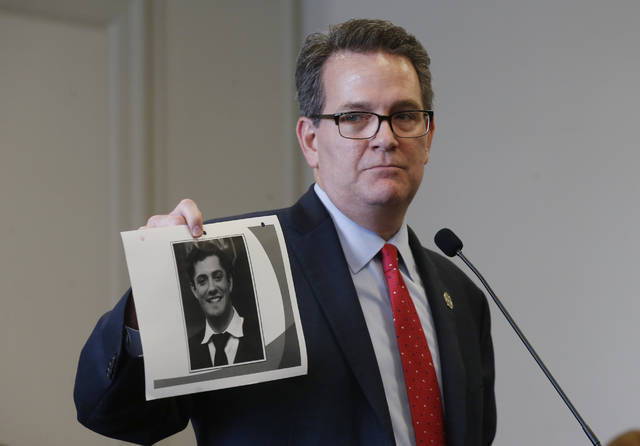OKLAHOMA CITY — Dozens of prisoners serving no-parole sentences for killings they committed as juveniles are expected to get a chance for release, including the Oklahoma teenager convicted of shooting a college baseball player from Australia as he jogged down the street.
Prosecutors likely can’t meet the new legal threshold for the life-without-parole sentence given to Chancey Luna, who was 16 when he shot and killed Australian Chris Lane in 2013, District Attorney Jason Hicks told a state House panel on Tuesday.
Lawmakers in states across the country are grappling with how to resentence juveniles after the U.S. Supreme Court determined such sentences should be reserved only for the rarest cases.
As a result of the high court’s decision, which came in 2012 but wasn’t applied retroactively until 2016, prosecutors must now prove “irreparable corruption” and “permanent incorrigibility,” a legal threshold Hicks said he doesn’t believe he can meet in the Luna case.
Still, Hicks argued that some teen killers are so calculating and callous that they deserve to never have a chance at release. He cited the case of 14-year-old Alyssa Wiles, whose mother delivered emotional testimony to lawmakers about how her daughter’s 16-year-old boyfriend stabbed her to death in her bedroom.
“When a judge sentenced him to life without parole, we thought it was over,” Angela Wiles said, choking back tears. “Now we have to worry about him getting out.”
Oklahoma has at least 41 criminal defendants serving no-parole sentences for crimes committed when they were 17 or younger, and those cases are in various stages of appeal. Some prosecutors already have agreed to a life sentence for offenders in some cases, which in Oklahoma equates to a chance for parole after 38 years.
Among those serving a no-parole life sentence is Leigh Ann Zaepfel, who was convicted of two counts of first-degree murder after two people were shot dead during a 1990 robbery. Zaepfel, now 45, has served 28 years and is currently imprisoned at Mabel Bassett Correctional Center in McLoud.
Zaepfel said she believes she’s an entirely different person than she was at 17, and she would like a chance at freedom one day.
“I think mercy is important,” Zaepfel told The Associated Press during a prison interview. “This is the Bible Belt. That’s what Jesus taught: love, forgiveness and mercy. So you can’t define somebody by one mistake, without investigating, instead of putting everybody in a box.”
Given the Supreme Court’s guidance on the issue, most states are now banning no-parole sentences altogether, said James Dold, advocacy director for The Campaign for the Fair Sentencing of Youth, which opposes no-parole sentences for children.
While there were only five states that banned such sentences before the court’s decision, there are now 20 states and the District of Columbia that prohibit them, including Texas, Arkansas, Kansas and Colorado.
“When you have Texas and Arkansas on the same page as California and Massachusetts, you’re really talking about broad bipartisan support,” Dold said.
At least two states — Louisiana and Missouri — have passed laws preserving no-parole sentences for juveniles in some cases.
State Rep. Emily Virgin, a Democrat from Norman who requested Tuesday’s legislative hearing, wrote a bill last year that would add Oklahoma to the list of states banning no-parole sentences for juveniles, but it failed to get a hearing in the GOP-controlled House.
Virgin said she intends to introduce another bill next year, although she acknowledged it will be difficult to pass, especially because district attorneys want to retain the no-parole option for certain offenders.
———
Associated Press photographer Sue Ogrocki contributed to this story.
———
Follow Sean Murphy at www.twitter.com/apseanmurphy



